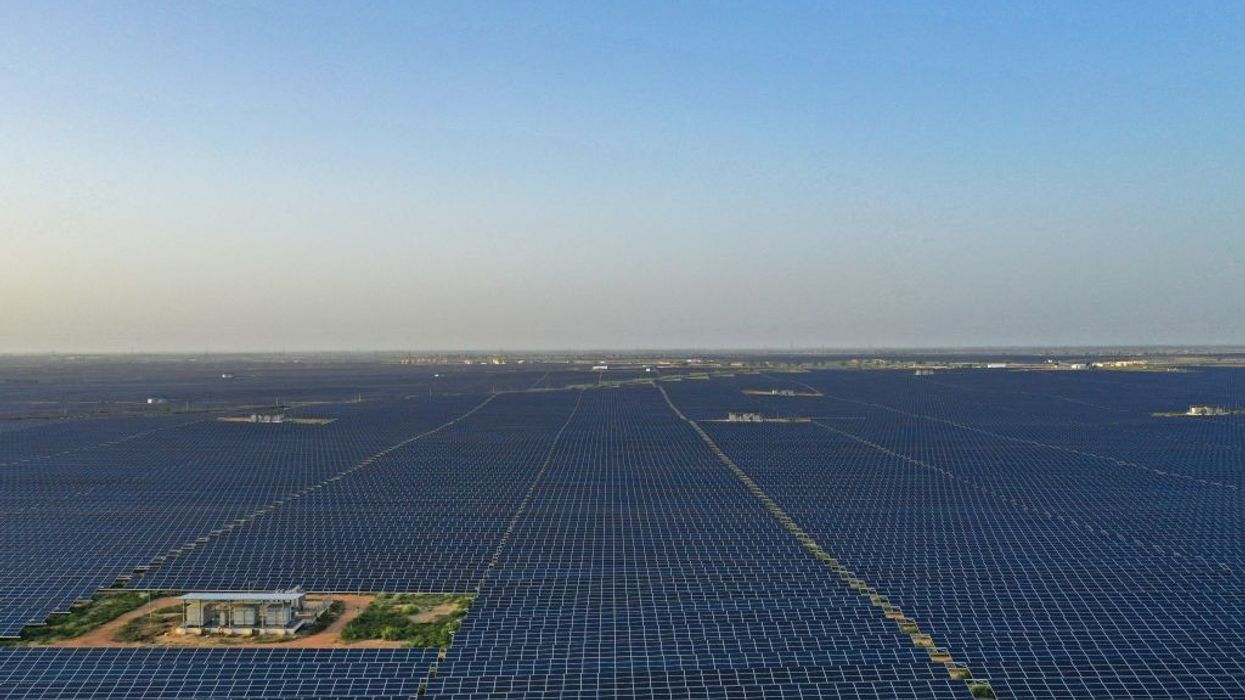AFTER witnessing cloudy skies this year, India's renewable energy sector is expected to boom in 2022.
An investment of more than $15 billion (£11.1 bn) is expected next year as the government focuses on electric vehicles, green hydrogen, manufacturing of solar equipment as well as achieving the ambitious 175 GW renewable capacity target.
India, which has an installed renewable energy generation capacity of a little more than 150 GW, aims to reach 175 GW in 2022. Out of the total mix, 100 GW would be from solar, 60 GW from wind, 10 GW from bio-power and 5 GW from small hydropower projects.
"In 2022, we expect the investment in renewable energy to cross at least $15 bn (£11.19 bn)," union minister for power and new and renewable energy R K Singh said.
According to Bloomberg New Energy Finance (BNEF) reports, the new investment made in the clean energy sector in the country stood at $6.2 bn (£4.62 bn) in 2020, $9.3 bn (£6.94) in 2019 and $10.8 bn (£8.05 bn) in 2018. These figures were cited by the minister in a written reply in parliament last month.
The second wave of Covid-19, which started in April, had impacted the implementation of various renewable energy projects as states imposed restrictions to curb the spread of infections.
During the 2014-2019 period, renewable energy programmes and projects in India attracted investments of $64.4 bn (£48.03 bn), as per the REN21 Renewables 2020 Global Status Report.
Nevertheless, in 2021, new opportunities emerged. Indian companies started exploring overseas markets to raise funds and in August, ReNew Power became the first Indian renewable energy company to list on the Nasdaq.
Data from the Department for Promotion of Industry and Industrial Trade (DPIIT) showed that the Indian 'non-conventional energy' sector received about $7.27 bn (£5.42 bn) as FDI from 2014-15 till June 2021. Out of the total amount, FDI to the tune of $797.21 million (£594m) came in 2020-21.
On the country's march towards achieving the renewable energy capacity of 175 GW in 2022, the minister said, "We will achieve the 175 GW of renewable energy capacity target which was set by us (excluding large hydro)."
In November, Singh said, the country achieved an installed capacity of 150 GW of renewable energy, including large hydro projects. There is 63 GW of renewable energy capacity which is under installation and this is expected to be completed next year, he noted.
At COP 21, as part of its Nationally Determined Contributions (NDCs), India committed to achieving 40 per cent of its installed electricity capacity from non-fossil energy sources by 2030. India achieved this target in November 2021 itself.
As of November 30, the country's installed renewable energy capacity stood at 150.54 GW, comprising solar (48.55 GW), wind (40.03 GW), small hydropower (4.83 GW), bio-power (10.62 GW) and large hydro (46.51 GW). The nuclear energy-based installed electricity capacity is at 6.78 GW.
Together, the non-fossil-based installed energy capacity is 157.32 GW, which is 40.1 per cent of the total installed electricity capacity of 392.01 GW.
India aims to have 500 GW of installed renewable energy (RE) capacity by 2030.
Talking about boosting investments in the RE space, Singh said, "We have also opened the gates for installation of RE and selling it through open access. Now, anybody can set up RE capacity and sell it wherever they want."
In 2021, the government introduced the production linked incentive (PLI) scheme 'National Programme on High-Efficiency Solar PV Modules' with an outlay of Rs 45bn (£450m) to support and promote manufacturing of high-efficiency solar photovoltaic (PV) modules.
These include the upstage vertical components like cells, wafers, ingots and polysilicon. The initiative is expected to reduce import dependence in the solar PV sector.
Pursuant to the decision, a tender inviting bids for manufacturing of high-efficiency solar PV modules was issued. As many as 18 bids were received and that could help add another around 55 GW of solar PV module manufacturing capacity to the present capacity of around 11 GW.
(PTI)




